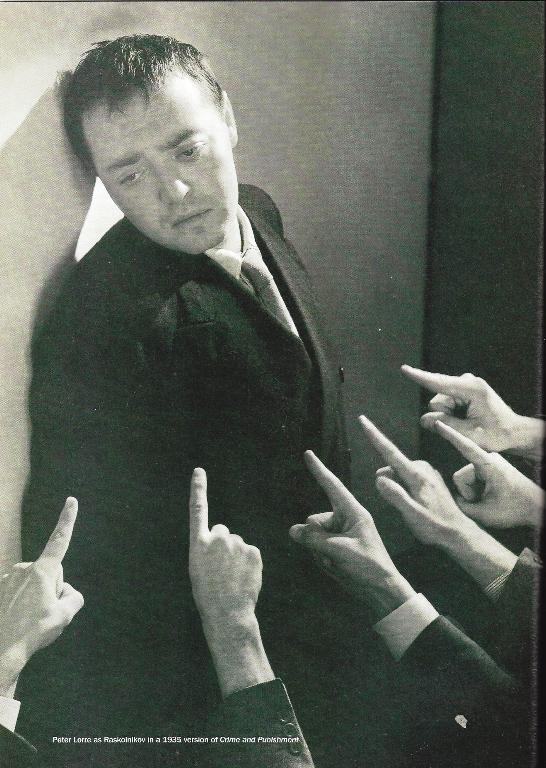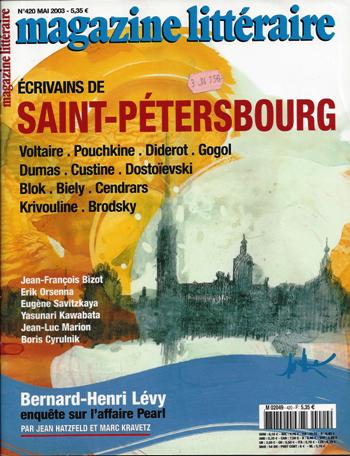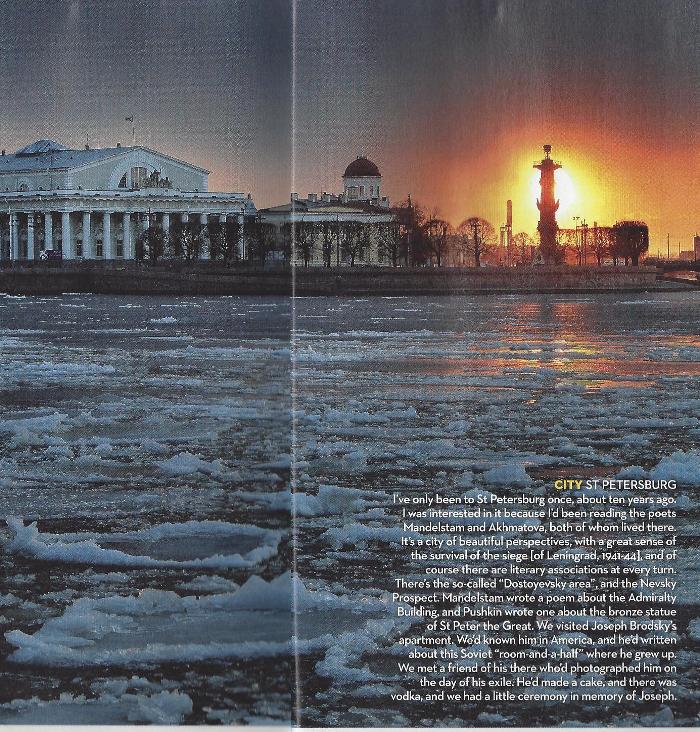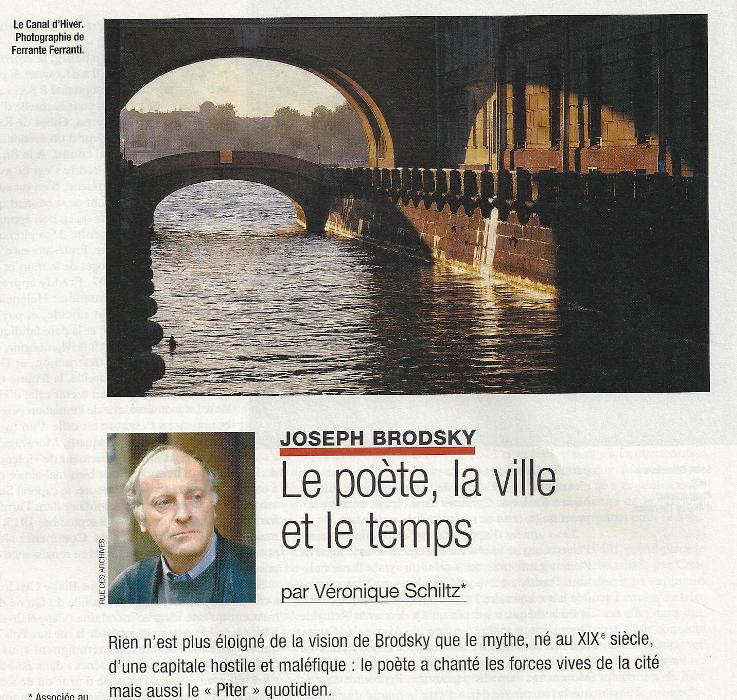 |
 Rodion R. Raskolnikov
Origin:
Fyodor Dostoyevsky's 1866 novel, Crime
and Punishment From Dante's
Inferno, where hell seems a good deal
more interesting than heaven, to Milton's Paradise
Lost, where Satan gets all the best lines, to Shakespeare's Othello, where
Iago's intrigues are more compelling than Othello's virtues, writers
have
learned fiction's dark secret: the allure of evil trumps the banality
of good.
Yet in Fyodor Dostoyevsky's Crime and
Punishment, the author passes rapidly over his main character's
evil deeds-the
pointless murders of an innocent old woman and her half-sister-to
explore their
psychological consequences. Time: The
100 most influential people who never lived, 100 người ảnh hưởng nhất
chưa hề sống. GCC đọc Tội
Ác đúng thời mới lớn, quen BHD, khi chờ Em,
trong 1 quán cà
phê túi của Sài Gòn, cùng những tác giả của thời mới lớn như
Sartre, với Buồn Nôn, Camus
với Kẻ Xa Lạ, Faulkner, và
những tác giả Mác xít như Henri
Lefebvre, Lukacs..    L’erreur est
plus lourde encore pour qui sait lire les poèmes ecrits après l'exil
forcé de 1972.
Car si, à la difference des essays écrits en anglais, la ville cesse
d'y être
explicitement présente, elle est en réalité partout. Puisque « on sait
parfaitement que pour tous ceux dont le russe est la langue maternelle,
cette
ville est plus réelle qu'aucun autre lieu au monde où cette langue peut
être
entendue », puisque « il n'y a pas de séparation, mais n'existe qu'une
vaste
rencontre », au-delà de la grille du Luxembourg, il y a celle du jardin
d'Eté ;
sur l'Hudson flottent les nuages en chou de la Baltique ; derriere
Amsterdam se
profile la Nouvelle-Hollande et son portail plus que jamais
inaccessible, arche
en briques enjambant une eau grise, Piranése ou Lorrain suivant les
heures du
jour. Pourtant « il n'y a que l'eau, et
elle seule,/ qui toujours et partout reste fidèle / à elle-même,
insensible aux
métamorphoses, lisse, / là-bas ou il n'y a plus de terre ferme »,
C'est
pourquoi Venise est, en realité, devenu le Petersbourg du poéte, et San
Michele
son Ithaque. + Cùng với những cuộc phiêu lưu của những tác phẩm lớn ở trong tôi, Sài-gòn trở thành một sân khấu cho tôi đóng vai những nhân vật-nhà văn. Thành phố thân yêu, một buổi sáng đẹp trời bỗng nhường cho một St. Petersbourg thời Dostoievsky với những cầu thang âm u, và cậu sinh viên, trong một góc bàn tại một tiệm cà phê Tầu nơi Ngã Sáu, một mình đi lại trong giấc mơ vĩ đại, biến đổi thế giới, làm lại loài người. |